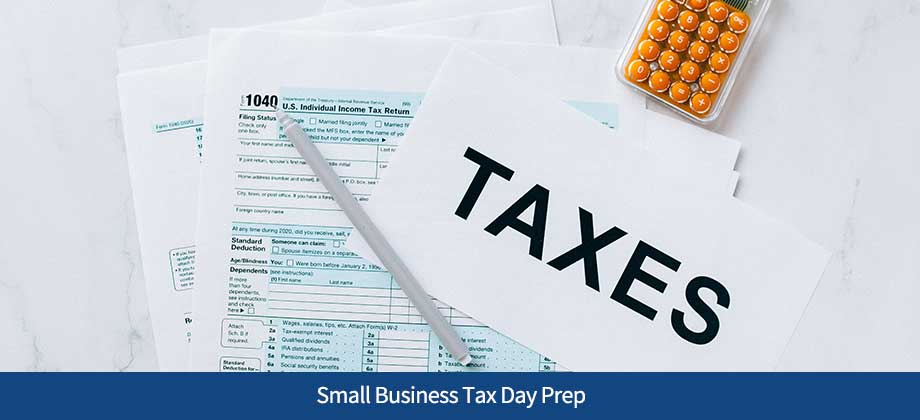Small Business Tax Day Prep

Filing taxes is one of those life requirements that, despite happening every year, always seems to sneak up on us. As a small business owner, this task can seem daunting. However, with a little preparation it’s not too difficult to make tax day something to celebrate. Okay, maybe not celebrate… but we can at least help you make tax day a bit more tolerable. Ready to dive in?
Wrap up Reporting
Don’t wait until the last moment to finalize your calendar year reporting. In order to file your taxes in an efficient manner, you’ll want to have a clear picture of where your money went last year. And if you can automate the process, all the better. So, get to work determining your taxable income from January 1 until December 31.
Review Legislation
A simple online search for small business tax information can point you in the right direction to get an understanding of new legislation, laws, changes, credits, and deductions. Deductions are particularly important to because they can help you save a ton of money come tax time; credits are ideal because they can help lower your tax bill.
Put Your Accountant to Work—All Year
If you’re only engaging with your accounting during tax season, you’re likely not using them right. Tax prep is a marathon, not a sprint. Throughout the year, you and your accountant should partner to track your business income and spending as well as gross and net profits.
Make Sure You Can Pay
Filing taxes is one thing, but paying taxes is a whole other beast. While you may not know throughout the year just how much you’ll wind up owing (or not owing!) Uncle Sam, it’s critical to keep enough liquid assets on hand to pay your dues. You can also try estimating your taxes early on and setting aside those funds in a “can’t touch this” account.
Get Ahead of Next Year
A bit of advice that “future you” will appreciate: Track things throughout the year. We’re only 2 months in, so it’s the perfect time to start really documenting your receipts and business expenses in order to take advantage of the most possible deductions come next tax season. You’ll end up saving a lot of time in the long run if your expenses are regularly itemized and categorized. Staying on top of record keeping on a regular basis can also help ensure your tax returns are accurate. Inaccurate returns can raise red flags with the IRS, and the last thing you want as a small business owner is a tax audit. In addition to your business expenses and deductions, your payroll taxes should also be calculated throughout the year.
Whether you’re considering an expansion, updating your equipment, hiring more staff, or buying out investors, a line of credit from ARF Financial can help you reach your business goals. Your dedicated loan consultant can get you the funds you need quickly, with very little paperwork. And our fixed terms are clearly spelled out, so you know exactly how much you’ll pay back and when you’ll be paid off. Visit us and get your free quote today!

